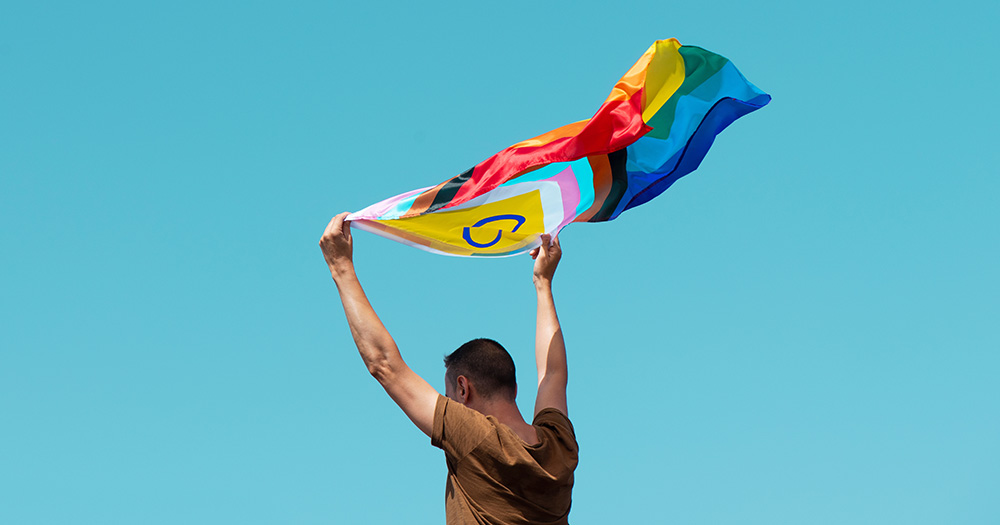On the evening of Wednesday, October 23, the long-awaited Criminal Justice (Hate Offences) Bill 2022 was passed by the Dáil. It was approved by a majority vote of 78 to 52, and can now be signed into law by President Michael D. Higgins.
The legislation is an amended version of the Incitement to Violence or Hatred and Hate Offences Bill, which was previously approved in April 2023 but later faced criticism from several political parties. Earlier in October, Minister for Justice Helen McEntee officially removed the ‘incitement to violence and hatred’ element of the proposal due to a lack of consensus.
While the amended version does not protect against hate speech, it will introduce harsher penalties for crimes found to be motivated by a person’s protected characteristics, namely race, colour, nationality, religion, national or ethnic origin, descent, disability, gender (including trans and non-binary identities), sex characteristics and sexual orientation.
While the bill continued to face some opposition in the Dáil on Wednesday evening, Minister McEntee noted that Ireland is an international outlier regarding its lack of hate crime legislation. In response to criticism that it does not clearly define ‘hatred’, she also explained that no other jurisdiction which has brought in such laws has a specific definition.
Hate Crime Bill has passed all stages of Oireachtas.
Now goes to the President to sign into law.
🇮🇪 will no longer be the outlier in 🇪🇺 in not recognising crimes motivated by a hatred of someone’s inherent identity 👏👏
Long overdue. #PassTheBill #PassedTheBill @GCNmag
— Adam Long 🏳️🌈🇪🇺 (@adamlong80) October 23, 2024
Welcoming the bill’s passage in a separate statement, the Justice Minister said: “We are determined to stamp out hate-motivated crimes and we are determined to protect vulnerable communities.
“This legislation is much needed,” she continued. “An Garda Síochána already record certain crimes as hate crimes, and we can see that recorded hate crimes increased by 7.5pc last year compared to 2022, and by 29pc the year before that.
“It is not acceptable that some people live in fear simply because of who they are. Ireland is one of the last countries in the EU not to have specific hate crime offences set out in law. I am delighted to have been able to bring this legislation through the Houses to protect vulnerable and minority groups from harm.”
With regards to scrapping the hate speech element of the law, she added: “It is the duty of Government to ensure that people are protected from crime, particularly where those crimes are targeted against them on account of their very existence.
“Making the decision to remove the incitement to violence or hatred provisions was a difficult one; but it was necessary to move forward to put the hate crime provisions into law. The message this sends is clear – hatred and violence towards others because of who they are will not be tolerated, and now the law will reflect this.
“I have been very clear that I believe we need to update the 1989 Act to adequately deal with incitement to hatred offences, particularly in the context of modern online communications. I absolutely believe this needs to be next on our agenda and amendments to the 1989 Act will be progressed at the earliest opportunity.”
Minister for Equality Roderic O’Gorman also spoke after the hate crime bill’s passage in the Dáil, expressing that he and the Green Party are “really pleased to have been able to deliver it as part of this government and see that nobody can be targeted because they’re part of a minority group in our country.”
From today, targeting people because of their minority status will be seen as a crime.
The hate crime legislation has passed through the Dáil tonight, led by our Minister for Equality @rodericogorman
This has been a key priority for the #GreensInGovernment pic.twitter.com/uO7iT2Ex80
— Green Party Ireland (@greenparty_ie) October 23, 2024
Responding to proceedings in the Oireachtas, the National LGBT Federation (NXF) stated: “LGBT+ and other communities deserve protection and we welcome the imminent passage into law of this long overdue legislation. There must be consequences for targeting people for who they are.”
The Hate Crime Bill has now passed all stages of the Oireachtas and will become law once signed by President Higgins!
Crucial elements retained including inclusive gender protections & what is known as ‘demonstration test’ (where hate criminal demonstrates hate) 1/2 pic.twitter.com/cVllEDpe0n
— NXF (@nxfie) October 23, 2024
In another X post, the organisation wrote: “Some speakers in Hate Crime debate have falsely claimed that ‘the people’ oppose this Bill. That is entirely false. Multiple research shows that the vast majority of Irish people support hate crime laws, including 82% who believe Trans (people) should be protected.”
Some speakers in Hate Crime debate have falsely claimed that ‘the people’ oppose this Bill.
That is entirely false.
Multiple research shows that the vast majority of Irish people support hate crime laws, including 82% who believe Trans should be protected.@GCNmag @barrymward
— NXF (@nxfie) October 23, 2024
Finally, the NXF shared that it and its civil society colleagues “remain firmly committed to seeing the incitement provisions of Bill revisited & enacted. Ensuring the legislation is fit-for-purpose is crucial. The safety of our communities is more important than ‘culture wars’ or political populism.”
© 2024 GCN (Gay Community News). All rights reserved.
Support GCN
GCN is a free, vital resource for Ireland’s LGBTQ+ community since 1988.
GCN is a trading name of National LGBT Federation CLG, a registered charity - Charity Number: 20034580.
GCN relies on the generous support of the community and allies to sustain the crucial work that we do. Producing GCN is costly, and, in an industry which has been hugely impacted by rising costs, we need your support to help sustain and grow this vital resource.
Supporting GCN for as little as €1.99 per month will help us continue our work as Ireland’s free, independent LGBTQ+ media.
